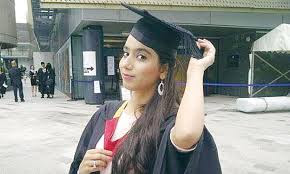 ISLAMABAD: A recent verdict by the Supreme Court has made a mockery of
conservation efforts in Pakistan. Despite outcry by protection
organizations over hunting of the endangered houbara bustard, they have
lifted a ban on it- claiming that controlled hunting was a tool for
preservation and should be allowed. Only one of the judges opposed the
court’s decision to conditionally allow hunting. Continuing to let
moneyed foreigners indulge in the blood sport killing hundreds per trip
only proves that we are more concerned with maintaining lopsided foreign
relations, than protecting our diverse wildlife.
ISLAMABAD: A recent verdict by the Supreme Court has made a mockery of
conservation efforts in Pakistan. Despite outcry by protection
organizations over hunting of the endangered houbara bustard, they have
lifted a ban on it- claiming that controlled hunting was a tool for
preservation and should be allowed. Only one of the judges opposed the
court’s decision to conditionally allow hunting. Continuing to let
moneyed foreigners indulge in the blood sport killing hundreds per trip
only proves that we are more concerned with maintaining lopsided foreign
relations, than protecting our diverse wildlife.This remains a classic case of the government mishandling a simple issue- a complete ban to conserve what desperately needs attention. It is not far from the truth that the government is driven by a fear of falling out with Arab dignitaries, but what is the life of a rare bird in the face of an Arab with money? In early 2014 a Saudi prince hunted 2,100 houbaras during the course of 21 days, whereas the permit limits the holder to a maximum of 100 birds over a 10-day period. The argument then for sustainable hunting of these birds is senseless as this will happen again. This removal of the ban will probably make it harder for another ban to be put in place and signals the end of the species.

Successive governments have granted special permits to Arab dignitaries to hunt the bird on diplomatic grounds as they bring investment to the social sector. Though hunting for sport indeed is a pastime for some in Pakistan, it is morally distasteful and extremely cruel. Killing for fun, whether a bird of any other animal is one of the worst activities that men can engage in. It seems most of these men are Arabs. Our esteemed Supreme Court has lowered itself by lifting the ban.
 Will the Supreme Court and Sindh Government also make sure that the
proceeds from killing the birds will go to something beneficial for the
people of Sindh? There is no hope for this. The same Government is also
presiding over mass deaths of children in Thar due to malnutrition and
starvation. For a leadership that is okay with children dying
needlessly, birds must be a strange thing for them to protect.
Will the Supreme Court and Sindh Government also make sure that the
proceeds from killing the birds will go to something beneficial for the
people of Sindh? There is no hope for this. The same Government is also
presiding over mass deaths of children in Thar due to malnutrition and
starvation. For a leadership that is okay with children dying
needlessly, birds must be a strange thing for them to protect.In the context of the moral decline of a leadership that has no regards for the dignity of life as long as its not their own, the lifting of the ban makes perfect sense.
Courtesy: The Nation















